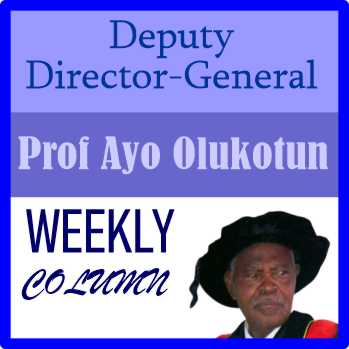There is an urgent need to implement the 2012 Oronsaye Report. Most agencies exist only as conduits for corruption.
Prof Banji Oyeyinka, Senior Special Adviser on Industrialization to the President of the African Development Bank, at a public lecture on Friday, November 11, 2022
Politics and governance are two identical twins which closely resemble each other. However, the underplaying of any one of them can spell doom for any country in the world, developed or developing. For reasons which the columnist may not explore in detail here, Nigeria is adept at politics and political competition, but has given little thought to translating political power into governance consequences. Indeed, the preponderant opinion is that all too often and as Hafsat Abiola-Costello once expressed, politics tends to trump governance. The reason is not hard to find, considering that politics is easy to play whereas governance is the most rugged part of the game and requires expertise, staying at the cutting-edge of knowledge generation and advancement, being intellectually inclined and possessing the ability to monitor structure and processes as they change over time.
Last week’s lecture delivered by Professor Banji Oyeyinka seeks to put the emphasis, not on politics as such, but on governance debilities and decay which according to him, have been the bane of Nigeria’s successive efforts at industrial ascent. He begins his narrative with the collapse of several state-owned companies in Nigeria, including industrial enterprises such as the Jebba Paper Mill, Iwopin Paper and Pulp Company, Nigerian Newsprint Manufacturing Company, Oku-Iboku, Akwa Ibom Statr; a rash of textile firms, Ajaokuta and Alaja Steel complexes, among others. The establishment of these industrial firms signalled the entry of Nigeria into the industrial age. Painfully, however, some of them are either stillborn or have outrightly collapsed, setting in motion a process which economists describe as de-industrialisation. The burden of the lecturer is to provide explanations for the collapse of these companies as well as provide a road map for a reset of an industrialised Nigerian economy.


Recent Comments